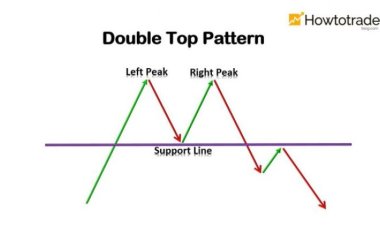Web Freelancing: Understanding the Concept, Functionality, and its Worth
In the ever-evolving digital landscape, web freelancing has emerged as a popular avenue for professionals to offer their skills and services remotely. It provides an opportunity for businesses and individuals to access a pool of talented professionals who can cater to their specific web development and design needs. In this comprehensive article, we delve into the world of web freelancing, exploring what it entails, how it functions, and why it is a valuable option for businesses and individuals alike.

Understanding Web Freelancing
Web freelancing refers to the practice of professionals offering their services on a project basis to clients seeking web-related expertise. These professionals, commonly known as freelance web developers or designers, possess the necessary skills and experience to build and maintain websites, develop web applications, optimize user interfaces, and more.
The Benefits of Web Freelancing
Web freelancing offers several advantages, making it an attractive option for businesses and individuals in need of web-related services. Some key benefits include:
-
Cost-effectiveness: Engaging a freelance web professional can be more cost-effective compared to hiring a full-time employee or outsourcing to an agency. Freelancers typically operate as independent contractors, eliminating the need for benefits, office space, and other overhead costs.
-
Flexibility: Freelancers often have the flexibility to work on multiple projects simultaneously, allowing them to cater to various clients and deadlines effectively. This flexibility can lead to faster turnaround times and increased efficiency.
-
Specialized Expertise: Freelance web professionals usually possess specialized skills in specific areas of web development, design, or programming. This allows businesses and individuals to select freelancers based on their specific requirements, ensuring access to top-notch expertise.
-
Customization: Working with a freelance web professional enables clients to receive personalized attention and customization. Freelancers can adapt to their clients' unique needs and preferences, delivering tailored solutions that align with their vision.
How Web Freelancing Works
To embark on a successful web freelancing journey, both freelancers and clients need to understand the underlying process. Here's a breakdown of the typical workflow involved in web freelancing:
1. Identifying Project Requirements
Clients initiate the process by clearly defining their project requirements. This includes outlining the objectives, desired functionalities, design preferences, and any specific technologies or frameworks they wish to be implemented.
2. Freelancer Selection
Freelancers, with their expertise and experience, can be sourced through various platforms and online communities specialized in connecting freelancers with clients. Clients evaluate freelancers based on their portfolios, reviews, and relevant skills before selecting the most suitable candidate for their project.
3. Project Scope and Deliverables
Once the freelancer is chosen, both parties collaborate to establish a clear project scope, milestones, and deliverables. This ensures that both the client's expectations and the freelancer's commitments are well-aligned.
4. Execution and Communication
The freelancer then proceeds to work on the project, utilizing their skills to bring the client's vision to life. Effective communication between the freelancer and client throughout the project duration is crucial, as it allows for feedback, clarification, and progress updates.
5. Quality Assurance and Revisions
Upon completion of the project, the freelancer performs thorough quality assurance tests to ensure all functionalities are working as intended. Any necessary revisions are made in collaboration with the client to guarantee satisfaction.
6. Project Delivery and Payment
Once the final deliverables are approved, the freelancer delivers the project to the client. At this stage, the agreed-upon payment is typically made, either in full or according to predefined milestones.
Is Web Freelancing Worth It?
The growing popularity of web freelancing is a testament to its worth in today's business landscape. Here are some compelling reasons why web freelancing is indeed worth it:
1. Access to Top Talent
Web freelancing allows businesses and individuals to tap into a global talent pool. Instead of being restricted by geographical limitations, clients can choose from a diverse range of highly skilled professionals who excel in their respective fields. This enables them to work with the best talent, regardless of their physical location.
2. Cost Savings
One of the primary advantages of web freelancing is its cost-effectiveness. By engaging freelance web professionals, clients can save significantly on expenses associated with full-time employees, such as salaries, benefits, office space, and equipment. Freelancers usually charge on a project basis, making it easier to manage and budget for web-related tasks.
3. Flexibility and Scalability
Web freelancing offers unparalleled flexibility and scalability. Businesses can engage freelancers on a project-by-project basis, allowing them to scale their workforce according to their needs. Whether it's a short-term project or ongoing support, freelancers can adapt to fluctuating demands, ensuring optimal resource allocation.
4. Expertise in Specialized Areas
Freelance web professionals often specialize in specific areas of web development and design. This expertise ensures that clients receive high-quality work tailored to their unique requirements. Whether it's front-end development, responsive design, e-commerce integration, or search engine optimization (SEO), freelancers possess the skills and knowledge needed to deliver exceptional results.
5. Faster Turnaround Times
Freelancers are known for their agility and quick turnaround times. With fewer bureaucratic processes and streamlined communication, projects can progress swiftly from initiation to completion. Freelancers prioritize efficient project management, ensuring timely delivery without compromising on quality.
6. Customization and Personalized Attention
Working with a freelance web professional allows clients to receive personalized attention and customization. Freelancers take the time to understand their clients' objectives, preferences, and brand identity, resulting in tailor-made solutions that align with their vision. This level of customization is often challenging to achieve with larger agencies or in-house teams.
7. Enhanced Collaboration and Communication
Web freelancing fosters direct collaboration between clients and freelancers. This promotes clear and efficient communication channels, enabling effective feedback, progress updates, and revisions throughout the project. Clients have the opportunity to actively participate in the development process, ensuring that their expectations are met.
8. Focus on Core Competencies
By outsourcing web-related tasks to freelancers, businesses can focus on their core competencies. Rather than diverting valuable time and resources to web development or design, they can concentrate on driving their business forward while leaving the technical aspects to the experts.
9. Diverse Perspectives and Fresh Ideas
Engaging freelancers brings fresh perspectives and innovative ideas to the table. Freelancers often work with a variety of clients and projects, giving them exposure to different industries and challenges. This exposure enables them to bring unique insights and creative solutions to the projects they undertake.
In conclusion, web freelancing offers numerous advantages for businesses and individuals seeking web development and design services. Its cost-effectiveness, access to top talent, flexibility, and customization make it a valuable option in today's digital landscape. By leveraging the expertise of freelance web professionals, clients can unlock their full potential and achieve outstanding results in their online endeavors.
How to Excel in Web Freelancing
Now that we have explored the concept and benefits of web freelancing, let's delve into some strategies to excel in this competitive field:
1. Build a Strong Portfolio
A compelling portfolio is crucial to showcase your skills and attract potential clients. Create a collection of your best work, highlighting diverse projects that demonstrate your expertise in various aspects of web development and design. Include case studies, client testimonials, and measurable results to strengthen your portfolio's impact.
2. Develop Specialized Skills
To stand out in the web freelancing arena, it's essential to develop specialized skills in high-demand areas. Stay updated with the latest technologies, programming languages, frameworks, and design trends. This continuous learning and upskilling will position you as an expert in your niche, making you more appealing to clients.
3. Cultivate Strong Communication Skills
Effective communication is the key to successful web freelancing collaborations. Develop strong interpersonal skills to understand clients' requirements, actively listen to their feedback, and articulate your ideas clearly. Prompt and professional communication builds trust and fosters long-term client relationships.
4. Nurture Client Relationships
Building strong relationships with your clients is vital for repeat business and referrals. Provide exceptional customer service, be responsive to their inquiries, and deliver projects on time. Going the extra mile to exceed their expectations will leave a lasting impression and make them more likely to recommend you to others.
5. Market Yourself Strategically
Invest time and effort in marketing yourself as a web freelancer. Create an engaging website or online portfolio that showcases your skills, expertise, and previous projects. Optimize your online presence through search engine optimization (SEO) techniques, social media marketing, and networking within relevant industry communities.
6. Offer Value-Added Services
To differentiate yourself from the competition, consider offering value-added services. This could include providing post-launch support, offering website maintenance packages, or providing additional resources and guides to help your clients maximize their online presence. By going beyond the initial project scope, you demonstrate your commitment to client success.
7. Maintain Professionalism and Reliability
Professionalism and reliability are essential in web freelancing. Honor deadlines, deliver high-quality work, and maintain a strong work ethic. Be transparent about project timelines, costs, and any potential challenges. Professionalism builds trust and credibility, setting you apart as a reliable freelancer.
8. Seek Feedback and Continuous Improvement
Actively seek feedback from your clients to identify areas for improvement and refine your skills. Take constructive criticism positively and use it as an opportunity to grow. Continuously learn and adapt to evolving industry trends and client preferences, ensuring you stay ahead in the competitive web freelancing landscape.
Conclusion
Web freelancing presents a wealth of opportunities for both professionals and clients alike. With its numerous advantages, such as access to top talent, cost-effectiveness, and flexibility, it has become a popular choice in the digital era. By understanding the web freelancing process, honing your skills, and adopting effective strategies, you can position yourself as a highly sought-after freelance web professional. Embrace the challenges and rewards that come with web freelancing, and unlock your full potential in this thriving industry.
Remember, success in web freelancing goes beyond technical skills. It's about building strong relationships, delivering exceptional work, and continuously striving for excellence. Embrace the journey, adapt to changes, and embrace the ever-evolving world of web freelancing.
Note: The strategies mentioned in this article are general guidelines and may vary based on individual circumstances and market trends.

















